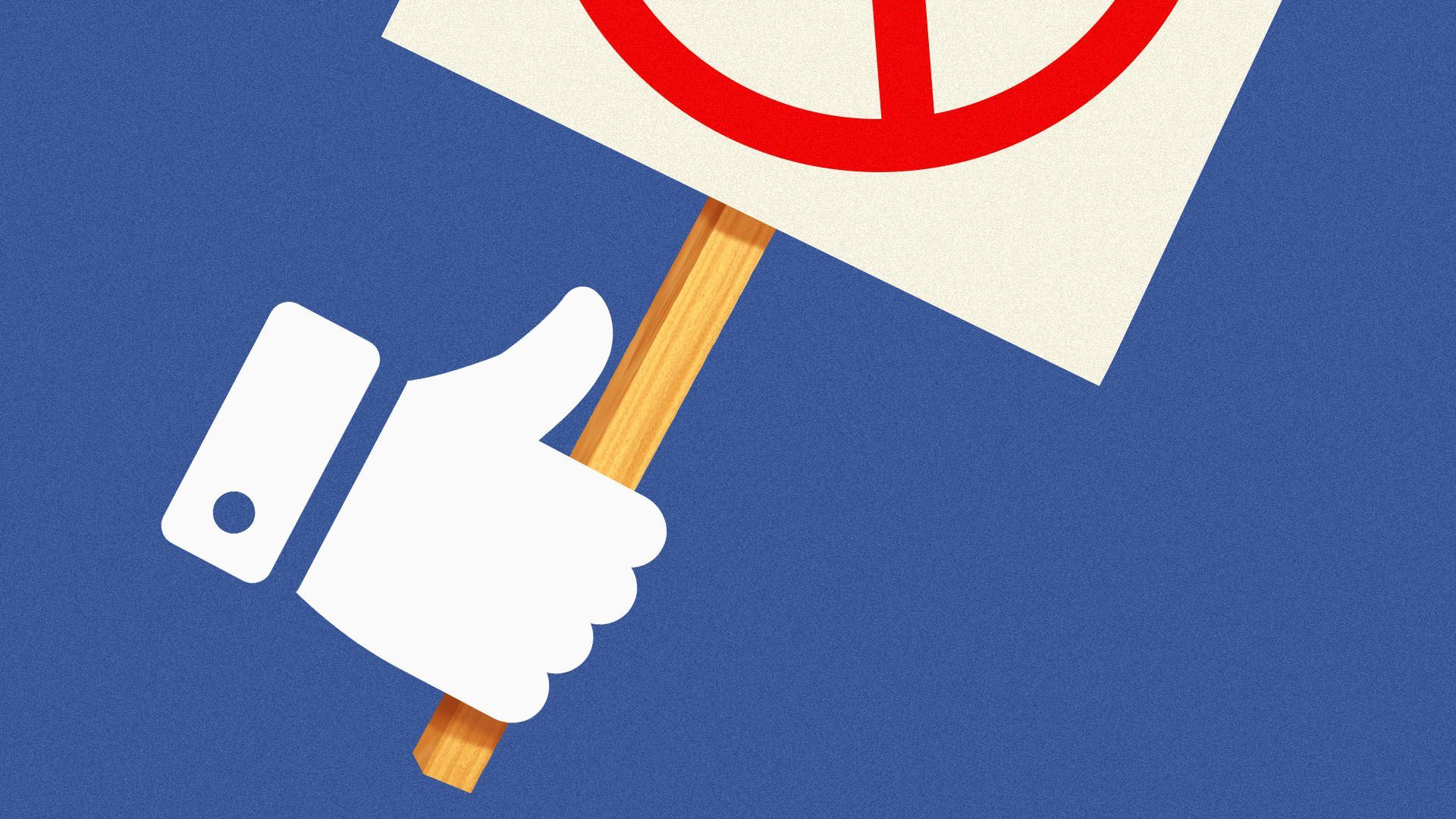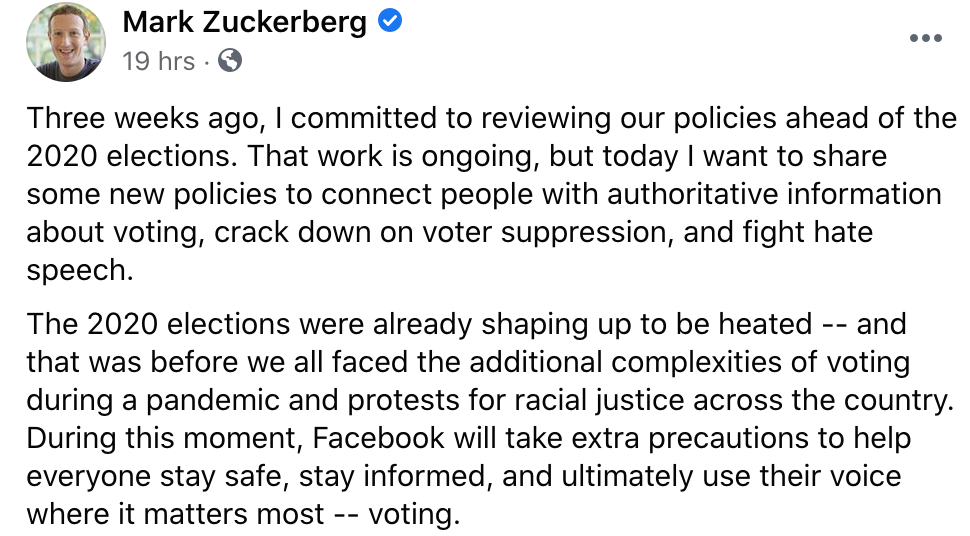The bottom-up revolution hits Facebook
Add Axios as your preferred source to
see more of our stories on Google.

Illustration: Sarah Grillo/Axios
Coca-Cola, Unilever and Hershey said Friday that they're cutting back on social-media-advertising, adding seismic voices to a growing boycott of Facebook.
Why it matters: This is a vivid example of a trend spotted last year by Axios CEO Jim VandeHei, and amplified by the new American realities brought on by the virus and protests: CEOs are the new politicians. They're helping do what President Trump and Congress would not.
Coca-Cola Chairman and CEO James Quincey said the massive advertiser "will pause paid advertising on all social media platforms globally for at least 30 days."
- And then his zinger: "We ... expect greater accountability and transparency from our social media partners.”
Similarly, Unilever headlined its announcement: "Driving a Responsible Digital Ecosystem in These Polarized Times."
- Unilever limited its action to brand advertising on Facebook, Instagram (owned by Faceb0ok) and Twitter in the U.S.: "Continuing to advertise on these platforms at this time would not add value to people and society."
Be smart: What started out as an industry scuttle over the way Facebook moderates its content has now turned into a larger cultural battle over curbing hate and bigotry online.
- Even Prince Harry and Meghan Markle, who speak out only occasionally on certain issues around mental health and social justice, have been privately advocating for the #stophateforprofit campaign, which includes a boycott of Facebook, according to multiple sources working closely with the couple.

Also Friday, Facebook said it will flag "newsworthy" posts from politicians who break its rules, including Trump.
- CEO Mark Zuckerberg had previously said people deserved unfiltered statements from leaders.
- Facebook told us Friday's changes were in the works before the boycott, with an eye toward November.
The big picture... This is another example of the bottom-up revolution: Employees expect something, CEO does something, Facebook responds.

